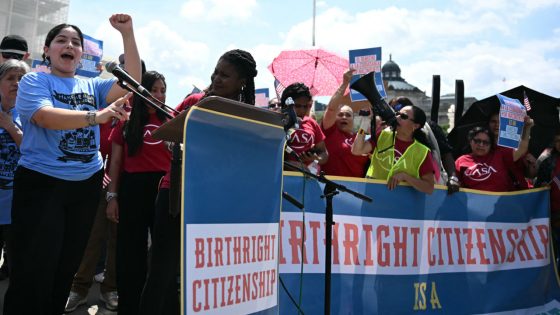America‘s Supreme Court faces a pivotal moment in the Trump v CASA case, which could redefine who qualifies as an American citizen. This case centers on the 14th Amendment’s longstanding promise of citizenship for “all persons born or naturalised” in the U.S. The implications are vast, as the ruling could reshape judicial power and citizenship rights.
- Supreme Court's uncertainty in Trump v CASA
- Case could redefine American citizenship criteria
- 14th Amendment's citizenship promise at stake
- Automatic citizenship historically granted to most
- Trump's executive order challenges existing interpretation
- Exceptions include diplomats and invading soldiers
Since 1898, the 14th Amendment has granted automatic citizenship to nearly everyone born on American soil, with few exceptions. However, former President Donald Trump’s executive order argues that this clause does not extend to children of undocumented immigrants or temporary visa-holders. As the Court deliberates, scheduled for 2025-05-18 23:12:00, the nation watches closely.
What does this mean for the future of American citizenship? The Court’s uncertainty raises important questions about the balance of power between legislative intent and executive action. As the nation grapples with immigration and citizenship debates, this case could set a precedent for years to come.
- The ruling could exclude children of undocumented immigrants from citizenship.
- It may redefine judicial interpretations of the 14th Amendment.
- This case highlights ongoing tensions in U.S. immigration policy.
As we await the Court’s ruling, it’s essential to engage in discussions about citizenship and its implications for our society. How will this decision affect future generations?
































